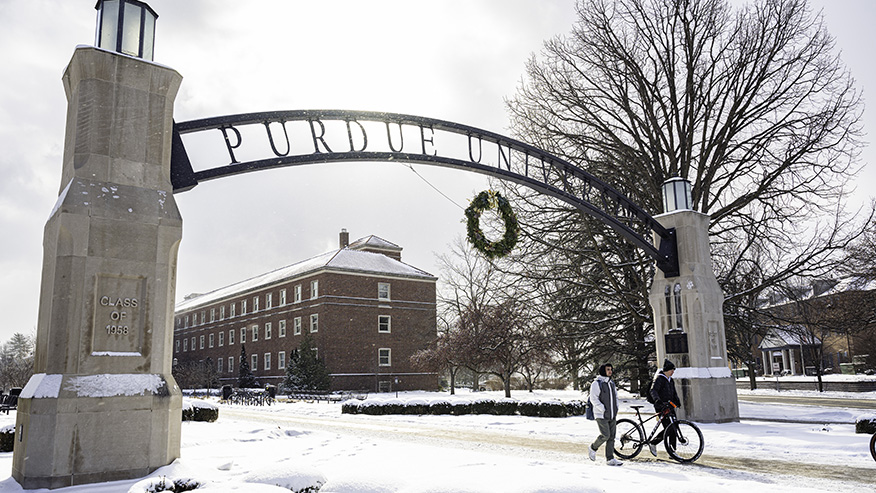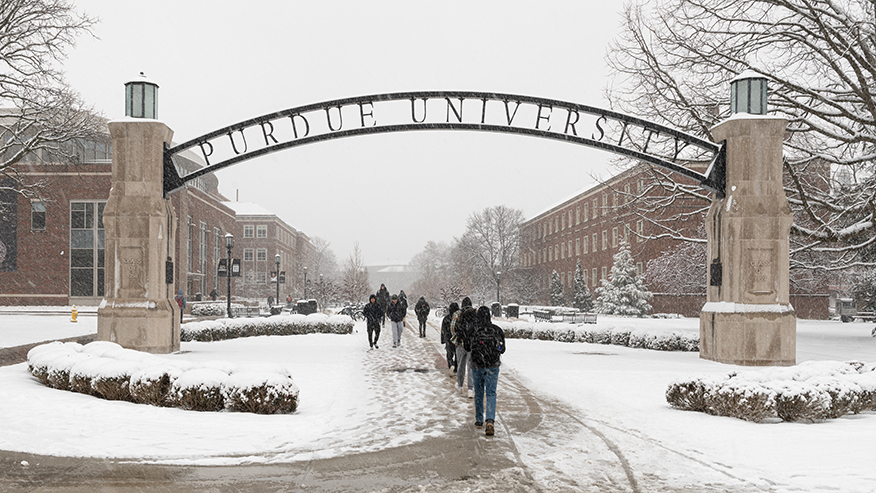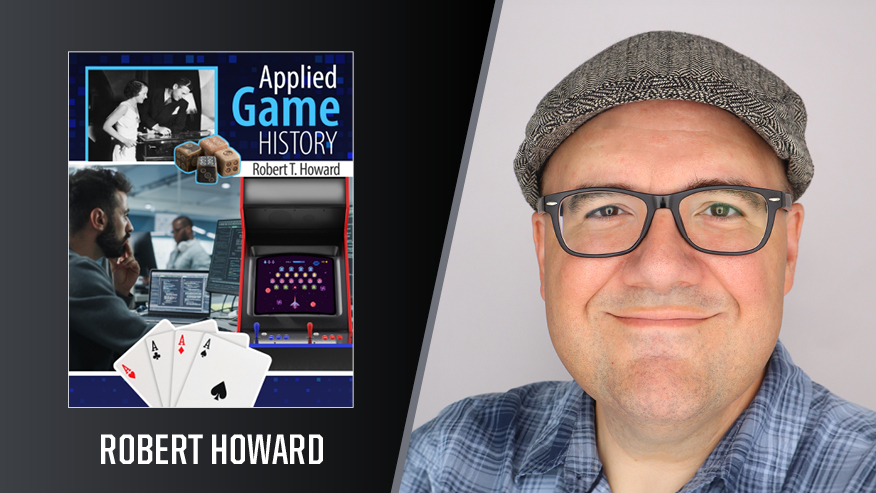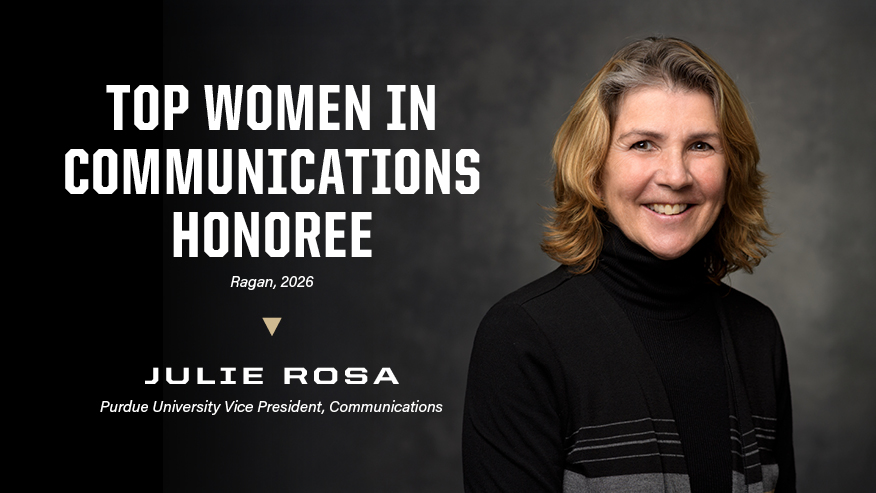Researchers in various studies looking for participants
Here is a list of research studies that currently are looking for participants.

Here is a list of research studies that currently are looking for participants..
Multimodal approaches to testing and prediction in early academic achievement: English skills in Grade 2 children
Purdue LitLang Lab is recruiting children who are currently enrolled in grade 2 to participate in a research study investigating children’s English skills.
This is a fully remote study where children will be asked to complete a series of online tasks related to English skills. This study will be done in one to two remote sessions. The session(s) will take place over a Zoom. A parent or guardian must be present during the session(s) to facilitate the child’s participation.
The parent or guardian will receive a $10 gift card for their child’s participation, and each child will receive a small toy.
For more information and to sign up, email litlang@purdue.edu. The principal investigator is Catherine McBride, Distinguished Professor of Human Development and Family Science. IRB-2024-626.
Study on early childhood emotional well-being, mental health screening
Researchers in the Department of Human Development and Family Science are recruiting caregivers (e.g., parents) and teachers of preschool-aged children to participate in a study on early childhood social-emotional well-being and mental health risk screening in preschool.
The lab is recruiting two groups of participants:
- Parents/caregivers of a child between the ages of 3-5 who is currently enrolled in a preschool program in Indiana
- Preschool teachers who currently work with children between the ages of 3-5 in a preschool program in Indiana
All participants must be able to read and speak English.
This study includes a brief, confidential online survey and an optional virtual interview. As appreciation for their time, participants will receive a $30 gift card for completing the survey and an additional $40 gift card for completing the interview.
For more information or to participate, please email shinelabpurdue@gmail.com or visit this link. Learn more about the lab here. The principal investigator for this study is Leigha MacNeill, assistant professor in the Department of Human Development and Family Science. IRB-2025-908.
Recruiting adults with stroke or Parkinson’s disease to participate in a swallowing and brain study
Researchers are recruiting adults who have had a stroke or been diagnosed with Parkinson’s disease who also have difficulty with eating or swallowing (known as dysphagia) for a swallowing and brain study.
Individuals may be eligible if they:
- are 50-85 years old and have been diagnosed with stroke or Parkinson’s disease and swallowing difficulties (dysphagia)
- are willing to come to the lab for a quick screening session and a free brain MRI
Participants may receive up to $40.
Note: Individuals with significant cognitive or psychiatric impairments, or history of head and neck surgery or radiation exposure to the head and neck area are not eligible to participate at this time.
The principal investigator is Georgia Malandraki, professor in the Department of Speech, Language, and Hearing Sciences. If interested, please contact the Swallowing Research Laboratory at swallowinglab@purdue.edu or 765-496-0207 to see if you qualify. IRB-2023-1383
Unraveling the brain stem neurotransmitters involved in the arterial baroreflex control of muscle sympathetic nerve activity: An MRI-MRS study
The Department of Health and Kinesiology is seeking healthy men and women ages 18 to 45 to participate in a study. Using advanced imaging and physiological recordings, the research team aims to explore how nerve activity, heart rate and vascular responses interact during both resting and simulated hypertension. Participants must meet the following criteria:
- 18-45 years old
- No previous history of severe cardiovascular disease, including stroke, heart attack and arrhythmias
- No previous history of neurological disorders, such as Parkinson’s or multiple sclerosis
- No metabolic diseases
- Not be under any pharmacological treatment or intense exercise program
- Be a nonsmoker
- Not have an allergy to medical adhesives
Pregnant women and individuals with claustrophobia or implanted objects (metal plates, screws, etc.) who cannot complete an MRI assessment will be excluded.
Participants will complete three visits lasting approximately one to four hours each. The visits will include health screening, noninvasive cardiovascular and nerve activity measurements, controlled breathing, and an MRI scan. A short-acting medication will be infused intravenously during select visits to temporarily increase blood pressure while physiological and brain responses are measured.
Participants will receive $250 for completing all study visits ($50 for the first visit and $100 for each of the next two visits).
For more information or to learn whether you qualify, please contact Ernesto Ramirez or leave a message for Igor Fernandes at 765-494-3184. Learn more about the lab here. The principal investigator is Igor Fernandes, assistant professor in the Department of Health and Kinesiology. IRB#: 2024-96
Study on body composition and e-cigarette use
Young adults ages 18-30 are needed for a study to assess how e-cigarette usage impacts body composition, muscle function and blood pressure. Researchers are interested to work with both individuals who currently use e-cigarettes as well as those who have never used e-cigarettes.
Participants will complete a questionnaire administered through Qualtrics that consists of questions assessing demographics, subjective health status, level of stress, physical activity level, diet and e-cigarette use. Following completion of the questionnaire, participants will make an appointment for physiological testing, which includes body composition analysis, blood pressure and grip strength. A copy of assessment results, including informative data such as percent body fat, skeletal muscle mass, percent body water, blood pressure and maximum grip strength, will be available after completing the study.
Those interested should fill out this survey or contact wilso774@purdue.edu. This study is conducted by Mark Wilson, clinical assistant professor for the Occupational & Environmental Health Sciences. IRB-2023-204.
Study examining physiological responses and cognitive processing under different conditions
Researchers are recruiting participants for a study examining physiological responses and cognitive processing under different conditions.
The study is intended for healthy adults ages 18-65. Individuals are asked to note during sign-up if they have a history of severe anxiety or PTSD, or are pregnant.
Participants will complete short cognitive tasks and surveys while wearing noninvasive sensors such as a heart-rate monitor, an eye tracker and a brain-activity sensor. The study will take about one hour and 45 minutes, and sessions will be held at Grissom Hall. Participants who complete the study will receive a $20 Amazon gift card as appreciation for their time.
Individuals interested in signing up to participate can do so online. For more information, contact Johnson Adetooto at jadetoot@purdue.edu. The principal investigators are Behzad Esmaeli, associate professor of civil and construction engineering, and Son Young-Jun, the James J. Solberg Head and Ransburg Professor of Edwardson School of Industrial Engineering. IRB-2025-1134.
Child-mother storytelling and play, and child behavior in the preschool
Researchers in the Department of Human Development and Family Science are seeking families with children between the ages of 40 months and 66 months (3.5-5.5 years) to participate in a study on child-mother interactions and storytelling.
Participation in the study includes one very short visit (15 minutes) in your home and one visit at Purdue’s campus (90-100 minutes). In addition, mothers will answer some questionnaires. Parents must be 18 years or older to be eligible to participate.
A payment of $40 will be given to participating mothers as appreciation for their time. For more information or to participate, contact German Posada, professor and associate head in the Department of Human Development and Family Science, at 765-494-1029, gposada@purdue.edu or familyinteractionslab@purdue.edu. Please indicate the child’s name and date of birth; your name and a telephone number or email address to reach you; and a best time to reach you. IRB: 2021-1189.
In vivo tendon properties across the lifespan of women
The purpose of the study is to characterize tendon tissue health in women, laying a foundation for developing strategies to improve their musculoskeletal function. Researchers are seeking women ages 21-75 to participate in a study evaluating the impact of menopause and exogenous estrogen use on tendon morphology and biomechanics. To participate, participants must meet the following criteria:
- 21-75 years old.
- Women who are pregnant will be excluded.
- Individuals with claustrophobia or implanted objects (metal plates, screws, etc.) who cannot complete an MRI assessment will be excluded.
- Individuals with any orthopedic condition that would prevent them from properly performing knee extensions will be excluded.
- Individuals with prior knee replacement or knee surgeries (e.g. ACL reconstruction) will be excluded.
- Those with diabetes (HbA1c>6.5) will be excluded.
- Chronic users of acetaminophen, ibuprofen or prescription cyclooxygenase inhibitors will be excluded.
- Individuals with physician-diagnosed liver disease will be excluded.
- No previous history of severe cardiovascular disease including stroke, heart attack and arrythmias.
- Individuals who have undergone a hysterectomy or removal of ovaries cannot participate in the study.
- No previous history of neurological disorders, such as Parkinson’s or multiple sclerosis.
Participants will attend five to six sessions at Purdue. Each session will last 30-45 minutes. The first session is an initial interview and screening. The second session consists of a fasted blood draw, 1-repetition maximum test and body composition measurement. Visits three through five are patellar tendon assessments using ultrasound imaging (visits two and three may be combined). Visit six is an MRI scan of the patellar tendon.
Benefits for participants:
- Although there are no direct benefits, the knowledge gained from this study may have implications for individuals going through menopause and may aid in guiding the future development of treatment options for tendinosis
- Compensation. Participants will be compensated $75 for completing this study.
For more information or to participate, contact Gordon Smilanich at gsmilani@purdue.edu or 317-721-3651 (leave a message). Learn more about the lab and research at https://hhs.purdue.edu/carroll-lab/.
The primary investigator is Chad Carroll, associate professor of health and kinesiology. IRB#: 2024-027.
Effect of native chicory inulin supplementation on rates of microbial change between individuals
Participants are needed by the Department of Food Science to study the effects of inulin supplementation on rates of microbial change between individuals.
Researchers are looking for participants who meet the following criteria:
- Nonsmoking males and females ages 18-45.
- Bowel movements more than four days per week.
- Willing to consume dietary supplements for six weeks followed by a six-week follow-up phase.
- Willing to provide frequent stool samples (daily, bi-daily, weekly, and bi-weekly) throughout all blocks.
- Willing to provide blood samples nine occasions (participants will be required to refrain from consuming any food the night before; they may still drink water during this time, but no other fluids).
- Willing to complete daily bowel habit, mood and frequent food diaries.
Participants have the potential to earn up to $350 to compensate for their time. To take part or find out more information, contact Peter Jackson at ppjackso@purdue.edu or 765-409-9789. The primary investigator is Stephen Lindemann, associate professor in Department of Food Science. IRB-2024-154.
Food environment, microbial cysteine metabolism and cancer disparities
Researchers from the Department of Nutrition Science are studying a nutrient called cysteine (pronounced SIS-teen). Researchers think that factors like a person’s diet can affect how cysteine breaks down in the gut and want to see how this can impact a person’s risk of colorectal cancer. To find out, they will study the foods people eat and their stress levels.
This study may be a good fit for you if you:
- Are ages 45-75.
- Are up-to-date on your colorectal cancer screening colonoscopy AND have a history of polyps (this will be verified by your medical provider).
- Are willing to provide multiple stool, water and blood samples.
- Have gone through menopause or haven’t had a monthly period for at least six months (if female).
- Do not have food allergies or dietary restrictions.
If you decide to take part in the research study, you would:
- Do a phone screening to learn more about the study.
- Eat three different study diets over the course of 11 weeks (food provided).
- Complete questionnaires.
- Track foods eaten in a food log.
- Provide multiple stool, water and blood samples.
- Visit the Purdue University Clinical Research Center or the Indianapolis University Hospital Clinical Research Center 11 times to pick up meals and provide samples.
Participants will receive $450 for completing the study. The money will be given in three different payments. All study-related food is provided at no cost. Participants can also choose to receive information about their water quality.
To learn more about this research, contact Patricia Wolf, principal researcher and assistant professor in the Department of Nutrition Science, at 765-494-1860 or email wolflab@purdue.edu. IRB: IRB-2023-1426.
Study on stuttering
The Speech Kinematic Sensor Integration Learning Lab is recruiting adults and children for paid studies on speech movements.
Participants will be asked to speak into a microphone and/or wear an electrode cap or motion tracking sensors. Studies will take place in a quiet lab setting located in Lyles-Porter Hall. Each session takes approximately one to three hours. Participants will be compensated for their time ($15/hour), and parking/transportation costs may be reimbursed. Researchers can usually schedule a session at a date and time that is convenient for the participant.
Individuals interested in the study should email skill@purdue.edu or call 765-496-0215. The principal investigator is Kwang S. Kim, assistant professor in the Department of Speech, Language, and Hearing Sciences. IRB-2023-744.
Study on experience of migration, acculturation, adaptation and integration
The purpose of this study is to describe the experience of migration, acculturation, adaptation and integration of engineers from the U.S. territories who are pursuing careers in the contiguous United States.
Participants must:
- Have moved to the contiguous United States for the purpose of pursuing a career as an engineer.
- Currently work and live in the contiguous United States. Alaska and Hawaii are not currently eligible for participation in this study.
- Be age 18 or older and not fully retired from working.
- Fill out this survey to give the researcher some background information and double-check eligibility.
- Find a quiet place to take Zoom calls.
Each interview will last 1 1/2 hours. Three interviews will be conducted in total.
Participants will meet with the researcher to talk about their experience of moving and adjustment. The three interviews should be spaced with as short of breaks as possible. Participants will reflect on their experiences and feelings.
The format of the interviews are as follows:
- Interviews 1 and 2: Participants will answer several questions about moving to the contiguous United States.
- Interview 3: Participants will answer several questions about adjustment and acculturation in the workplace.
The researcher will record audio responses to ensure answers are captured verbatim. Participants will receive $56.25 ($12.50 an hour) through a private Venmo transfer at the end of Interview 3.
For more information contact, Kevin Kaufman-Ortiz at kaufmano@purdue.edu. The principal investigator is Allison Godwin, associate professor of chemical engineering and engineering education. IRB-2025-177.
Effects of GLP-1 receptor agonists on sensory systems and ingestive behavior
This study, funded by the Clinical and Translational Science Institute, aims to explore how medications known as GLP-1 receptor agonists — commonly prescribed for diabetes and weight management — may impact taste, smell and eating behaviors. Results from this study may help develop improved dietary guidelines for those using these medications.
What to expect:
- In-person visits: Two sessions at Purdue, each lasting around one hour
- At-home tasks: Three days of dietary tracking and questionnaires to complete at home
Eligibility:
- Men and women ages 18-65 years
- Body Mass Index (BMI) >30 kg/m²
- Stable medication use
- People who:
- Have been taking GLP-1 receptor agonists for weight management for approximately 1 month (±0.5 months)
- No known sensitivity or allergy to the study solutions, which include sucrose solution, salt solution, citric acid solution, urea solutions, linoleic acid and milk
The research team will ask participants about their allergies and note that all test substances are common ingredients in the U.S. diet.
Participants will receive $100 for completing the study, with $50 provided for each session attended. The principal investigator is Richard Mattes, Distinguished Professor in the Department of Nutrition Science.
Those with questions or who want to express interest in participating can contact Giorgia at grutigli@purdue.edu or 765-421-0205. IRB-2024-1407
Health effects of grain foods in adults
Participants are needed by the Department of Nutrition Science to study the health effects of grain foods.
Participants must:
- Be age 18 and older
- Have a hemoglobin A1c of 5.7%-6.4%
- Be a nonsmoker
- Have no sensitivity or allergy to grain foods
Participants can earn up to $1,000 in 14 weeks. Contact Giorgia at grutigli@purdue.edu to participate or for more information. The principal investigator is Richard Mattes, Distinguished Professor in the Department of Nutrition Science. IRB-2023-1071
Validation of biomechanics component of SimulScan and aging study
Researchers are recruiting healthy adults for a swallowing and brain study directed by Georgia Malandraki, principal investigator and professor in the Department of Speech, Language, and Hearing Sciences.
Individuals may be eligible if they:
- Are 18-30 or 60-85 years old and generally healthy.
- Do not have problems swallowing.
- Are willing to come to the lab for a free swallowing evaluation and a free brain MRI.
Individuals will receive up to $40 for participating. If interested, email swallowinglab@purdue.edu or call 765-496-0207 to check eligibility and for more information. IRB-2023-714.
Combining high intensity interval training (HIIT) and mindfulness for enhanced executive function in children
The Physical Activity and NeuroCognitive Health (PANCH) Laboratory from the Department of Health and Kinesiology is looking for generally healthy, English-speaking children ages 10-12 with normal or corrected-to-normal vision to participate in research on how exercise may influence thinking and brain function.
To participate in this research, children need to pass a cardiovascular health screening, be free of prior diagnosis of cognitive disorders, have normal or corrected-to-normal vision, be able to perform exercise, and speak English.
Participation in this research requires five visits on separate days to Lambert Fieldhouse. Each visit will last 2-2.5 hours. The first visit will involve computer games and a fitness test. The additional visits will involve health-related and demographic questionnaires, interval exercise, and recording of brain waves using techniques such as electroencephalogram (EEG). Participation in this study will be compensated by a maximum total of $300.
Click this link to fill out the screening questionnaire. For more information, email panchlaboratory@purdue.edu or call 765-496-7781. Shih-Chun Kao, assistant professor of health and kinesiology, is the principal investigator. IRB-2023-1684.
Individuals with aphasia needed for study
The Purdue Aphasia lab invites people with aphasia to participate in a new NIH-funded training study. Participation will help researchers to better understand language recovery in aphasia, in hopes to develop new language treatments.
To be eligible, individuals should have aphasia as a result of a stroke, have no history of other neurological conditions (dementia, Parkinson’s disease, etc.) and be a native speaker of English. Eligibility for this training study will be determined after the initial language evaluation.
Studies will be conducted at Lyles-Porter Hall, at the Indianapolis lab site or virtually via Zoom. Participants, if eligible, will be compensated $20 per session, and free garage parking is provided.
The principal investigator is Jiyeon Lee, associate professor in the Department of Speech, Language and Hearing Sciences. For more information, contact aphasia@purdue.edu, call 765-496-0216, or visit the Aphasia Research Laboratory website. IRB-2021-659.



